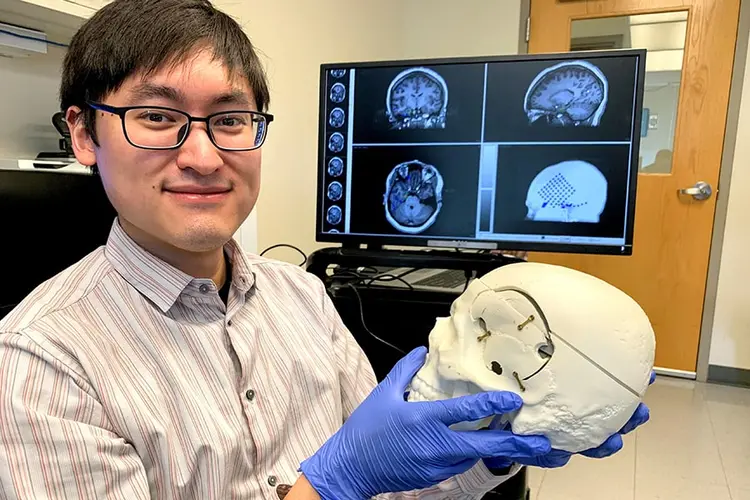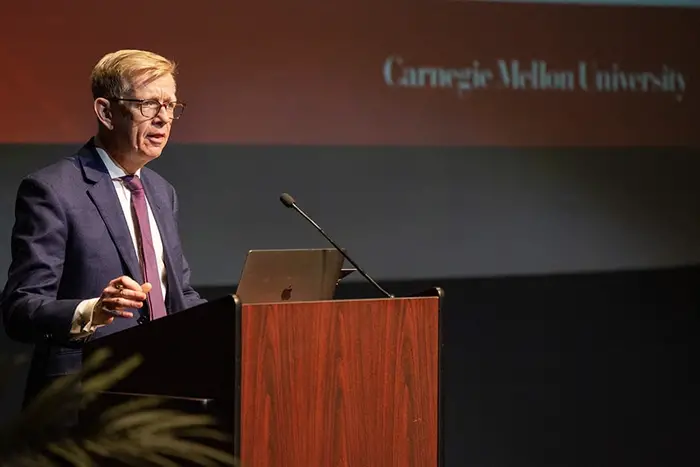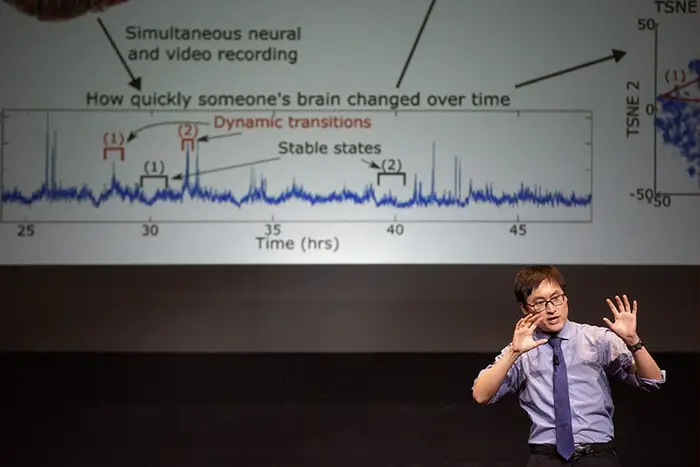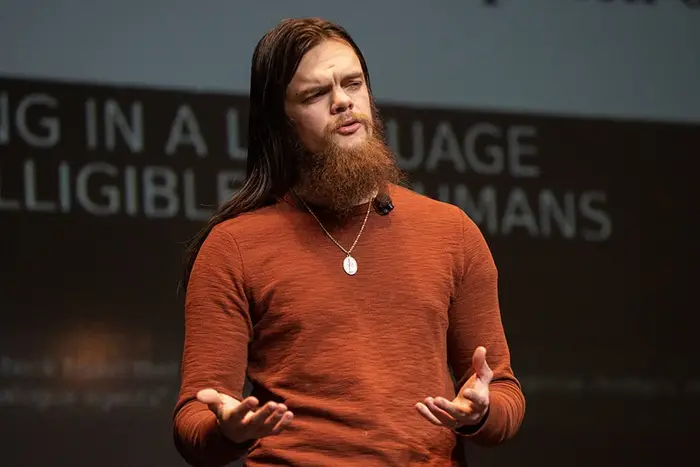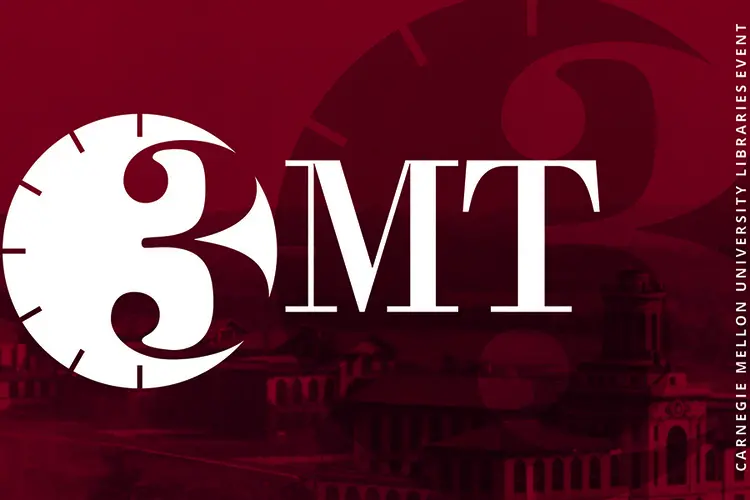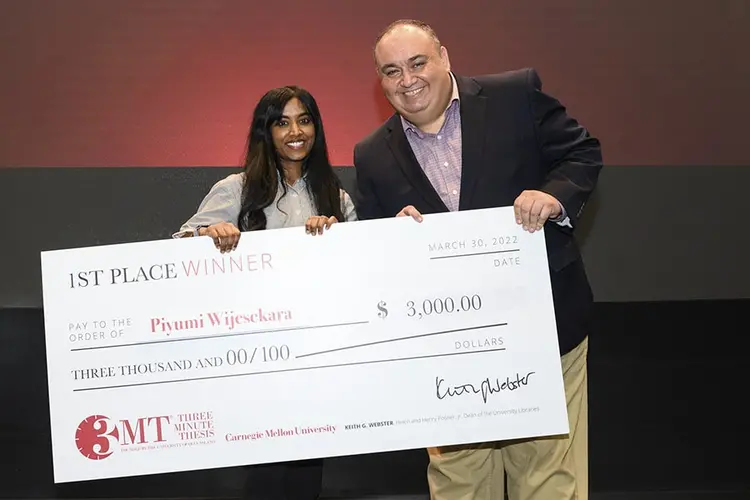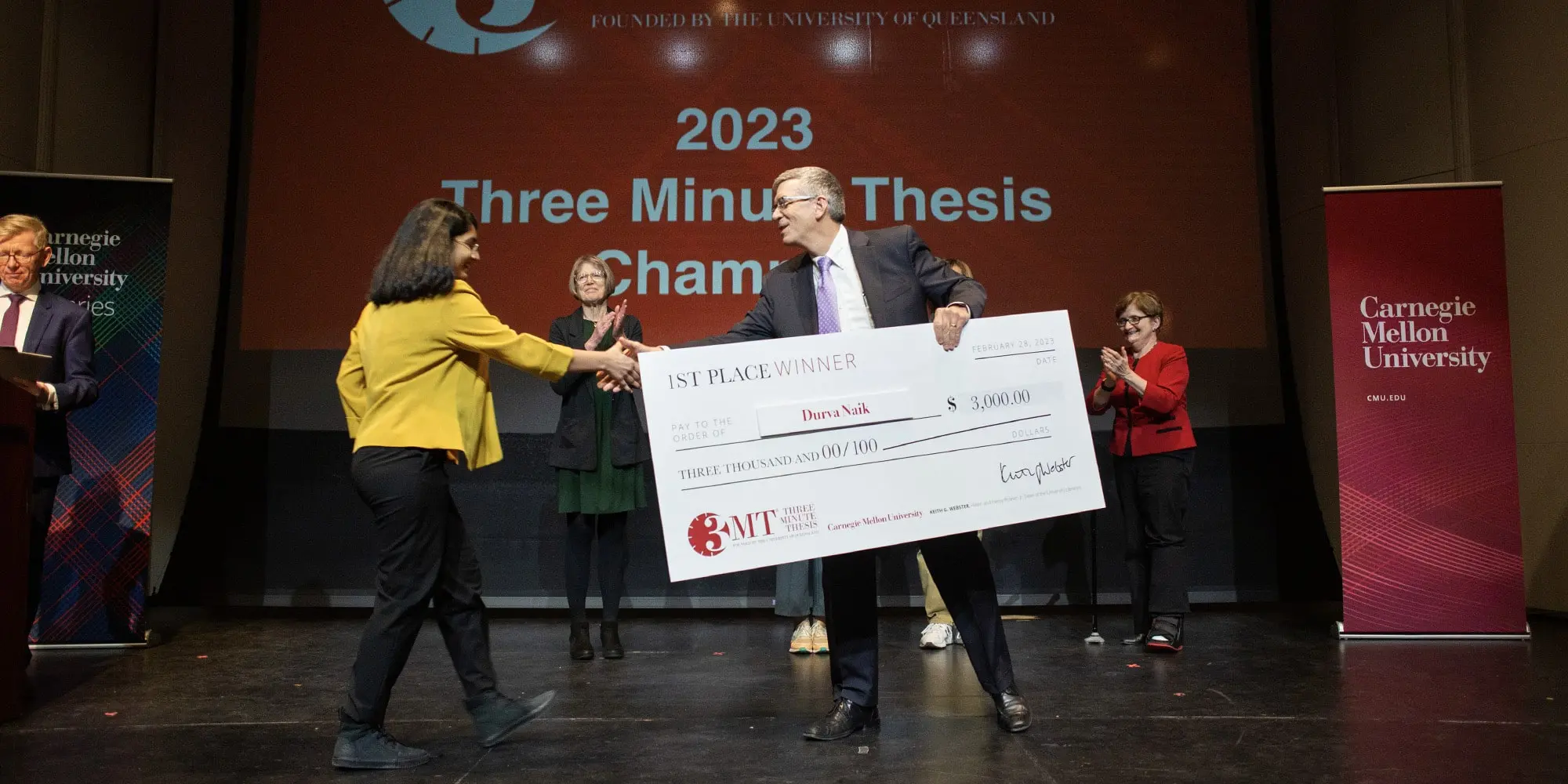
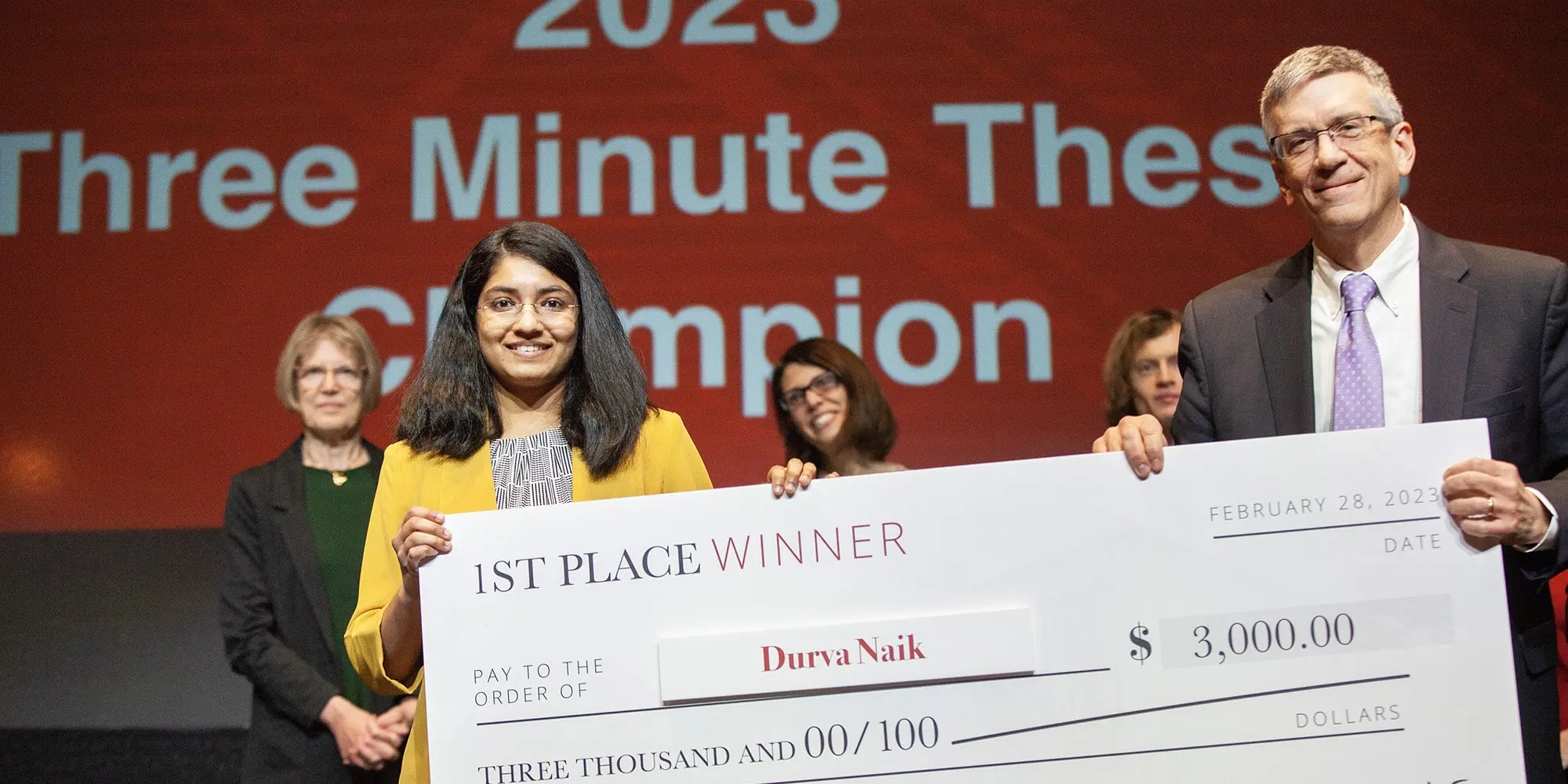
Doctoral Research Reaches Public in 3MT Championship
Media Inquiries
Eight doctoral students explained their complex research and its importance in under three minutes during the championship round of Carnegie Mellon University's Three Minute Thesis (3MT) competition, held Tuesday, Feb. 28 in the College of Fine Arts' Kresge Theatre.
First place was awarded to Durva Naik from the Department of Materials Science and Engineering(opens in new window). The People's Choice Award — selected by the audience in the theater — also went to Naik. Second place was awarded to Maxwell B. Wang, who is studying neural computation and machine learning(opens in new window), and third place went to Brendon Boldt from the Language Technologies Institute(opens in new window). Materials science and engineering student Amaranth Karra was selected as the Alumni Choice Award winner by online votes from alumni watching the livestream.
The event, which is in its eighth year at Carnegie Mellon, started at the University of Queensland in 2008 and has been adopted by over 900 universities across more than 85 countries worldwide. Helen and Henry Posner, Jr. Dean of the University Libraries Keith Webster(opens in new window) (pictured at podium), who brought the competition to CMU, served as host of Tuesday's finals.
Naik, a doctoral student in the College of Engineering(opens in new window), is researching devices to slowly dispense medication from the villi of the small intestine. She said that the biggest challenge she overcame when writing her award-winning speech was choosing language that was simple enough for a general audience to understand — while still conveying the importance of her work.
Watch recordings of the 3MT presentations on this playlist.
"Not many people even know about intestinal villi," she said. "Knowing that people don't know about it, I had to find a way to work it into the presentation. I wanted the audience to walk away understanding why these devices are going to completely transform the medical industry."
Wang agreed that 3MT was an invaluable opportunity to learn to communicate complicated ideas in everyday language. "My Ph.D. program does a very good job training you to become an expert in your material," he said. "But opportunities like this are a great way to hone your ability to share your work with a general audience."
�Maxwell B. Wang presents at the 3MT Championship.
His research, which studies how the brain changes states, embodies the interdisciplinary nature of 3MT. The work combines computation, machine learning and neuroscience expertise from Carnegie Mellon, as well as the skill of clinicians and medical teams at the University of Pittsburgh Medical Center.
"I think that this work had a unique advantage in that it was really a tremendous team effort," he said. "Funneling all of that expertise into this thesis work was a huge part of what made it such an amazing project."
Participating in 3MT helped clarify a new connection in Boldt's research, which looks at language invented by artificial intelligence (AI). When preparing for 3MT, Boldt (pictured speaking) decided to separate the human and AI sides of understanding emergent language for the first time.
"I didn't make this distinction in these terms until I was actually writing the script, and I realized it actually made it a lot easier for me to understand as well," Boldt said. "The opportunity to reframe my work and gain new insights is the whole reason I participated."
Karra (left), also from the College of Engineering, has won the Alumni Choice Award for two consecutive years. By participating, he hopes to inspire the audience with the knowledge that failure is a part of research.
"Research doesn't involve solving things that are easy," said Karra, who opened his presentation by highlighting the victims of the 1986 Challenger Space Shuttle breakup, including CMU alumna Judith A. Resnik, before diving into his work with new materials for space technology. "The process is about engaging with things that are difficult, that don't work, and trying to understand why they are failing and how to make them succeed."
Hear #3MT round 5 winner, Durva Naik of @cmu_mse, @CMUEngineering discuss preparation for the championship. Join Durva and the other finalists at the 2023 #3MTCMU championship tomorrow, 2/28 at 6pm ET in Kresge Theatre, @CMU_CFA Building or livestream. https://t.co/amqI12UU4b pic.twitter.com/maReXMDL0h
— CMU Libraries (@CMULibraries) February 27, 2023
— Related Content —
